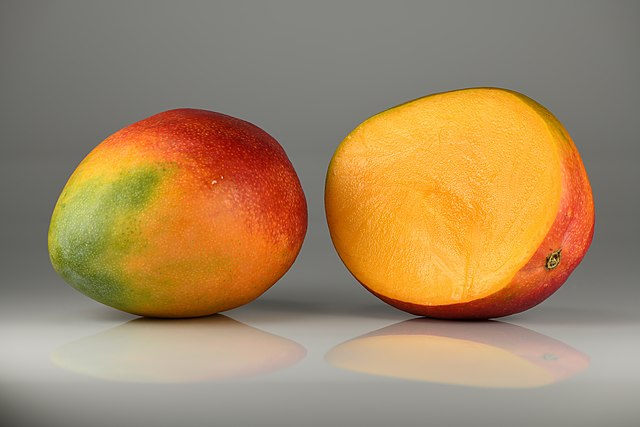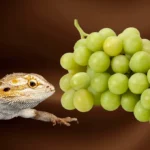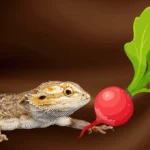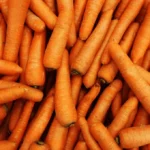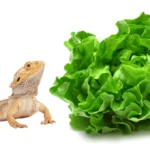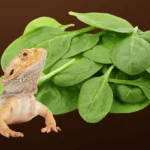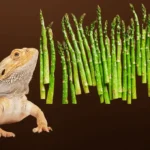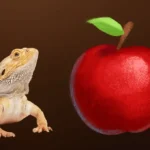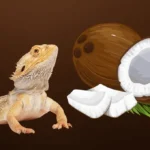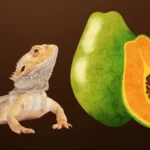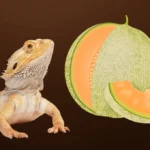Bearded dragons are omnivorous reptiles with a diet that includes a variety of insects, vegetables, fruits, and greens. Mango is a popular fruit known for its sweet taste and nutritional benefits for humans. However, when it comes to feeding mango to bearded dragons, it’s essential to understand its suitability and potential impact on their health.
This article explores whether mango is a safe and beneficial food for bearded dragons, including its nutritional profile, benefits, risks, and guidelines for safe feeding.
Nutritional Profile of Mango
Mango is a tropical fruit that offers a range of vitamins and minerals. Here’s an overview of its nutritional content and how it might affect bearded dragons:
Vitamins in Mango
Mangoes are rich in several vitamins:
- Vitamin A: Mangoes are an excellent source of vitamin A, which supports vision, immune function, and skin health. Vitamin A is essential for bearded dragons but should be balanced with other dietary sources to avoid excess.
- Vitamin C: This vitamin is important for immune health and overall well-being. It also aids in collagen production and wound healing.
- Vitamin E: Acts as an antioxidant, protecting cells from damage and supporting overall health.
Minerals in Mango
Mangoes provide a variety of minerals:
- Calcium: Mangoes contain a small amount of calcium, which is essential for bone health. However, they are not a significant source compared to other vegetables and fruits.
- Potassium: Helps maintain fluid balance, muscle function, and nerve function.
- Magnesium: Supports bone health, muscle function, and overall well-being.
Fiber Content
Mangoes are a good source of dietary fiber, which aids in digestion and helps prevent constipation. Fiber is beneficial for maintaining regular bowel movements.
Sugars and Carbohydrates
Mangoes are relatively high in natural sugars and carbohydrates. While these can provide energy, excessive sugar intake can lead to obesity and other health issues. It’s important to balance mango with other foods to prevent overconsumption of sugars.
Benefits of Feeding Mango to Bearded Dragons
Feeding mango to bearded dragons can offer several benefits when given in moderation:
1. Nutritional Variety
Mango adds variety to a bearded dragon’s diet, providing different nutrients and flavors. This diversity can help prevent nutritional deficiencies and keep feeding interesting for your pet.
2. Digestive Health
The fiber content in mango can support digestive health and help prevent constipation. Fiber promotes regular bowel movements and overall gut health.
3. Vitamin Boost
Mangoes are rich in vitamins A and C, which are beneficial for a bearded dragon’s health. Vitamin A supports vision and immune function, while vitamin C contributes to overall well-being.
Risks and Considerations When Feeding Mango
While mango can be a nutritious addition to a bearded dragon’s diet, there are some risks and considerations to be aware of:
1. High Sugar Content
Mangoes are high in natural sugars, which can contribute to obesity and other health issues if fed in large amounts. Excessive sugar intake can also lead to metabolic imbalances.
2. Low Calcium Content
Mangoes have a relatively low calcium-to-phosphorus ratio compared to other vegetables and fruits. Insufficient calcium intake can lead to metabolic bone disease (MBD) and other health problems. Ensure that mango is balanced with other calcium-rich foods.
3. Potential for Digestive Upset
Feeding mango in large quantities or too frequently can lead to digestive upset or diarrhea. It’s important to offer mango in moderation and observe for any adverse reactions.
4. Risk of Pesticide Exposure
If feeding mango, ensure that it is thoroughly washed to remove any pesticides or chemicals. Organic mangoes are a safer choice if available.
How to Safely Feed Mango to Bearded Dragons
To safely include mango in your bearded dragon’s diet, follow these guidelines:
1. Offer in Moderation
Feed mango as an occasional treat rather than a regular part of their diet. A small amount of mango, about the size of a grape, is sufficient for a bearded dragon.
2. Prepare Properly
Wash the mango thoroughly to remove any pesticides or chemicals. Peel the mango and cut it into small, manageable pieces to avoid choking hazards.
3. Balance with Other Foods
Ensure that mango is offered alongside a variety of other foods, including calcium-rich vegetables and protein sources. A well-balanced diet is crucial for maintaining optimal health.
4. Monitor for Adverse Reactions
Observe your bearded dragon after introducing mango into their diet. Watch for any signs of digestive discomfort, changes in behavior, or allergic reactions. If any adverse effects are noticed, discontinue feeding mango.
Alternative Fruits for Bearded Dragons
If you’re looking for other fruits to include in your bearded dragon’s diet, consider these options:
| Fruit | Nutritional Benefits | Feeding Frequency |
|---|---|---|
| Blueberries | High in antioxidants, vitamins C and K | 1-2 times a week |
| Strawberries | Rich in vitamin C, low in calcium | 1-2 times a week |
| Apples | Provides fiber and vitamin C, low in sugar | 1-2 times a week |
| Pears | Good source of fiber and vitamins | 1-2 times a week |
| Peaches | Contains vitamins A and C, low in sugar | 1-2 times a week |
These fruits can be offered in moderation to provide variety and additional nutrients.
Conclusion
Mango can be a nutritious and enjoyable treat for bearded dragons when fed in moderation. It offers a range of vitamins and fiber that can contribute to a balanced diet. However, due to its high sugar content and low calcium levels, mango should be included occasionally and balanced with other foods. By following these guidelines, you can provide a diverse and healthful diet for your bearded dragon.
